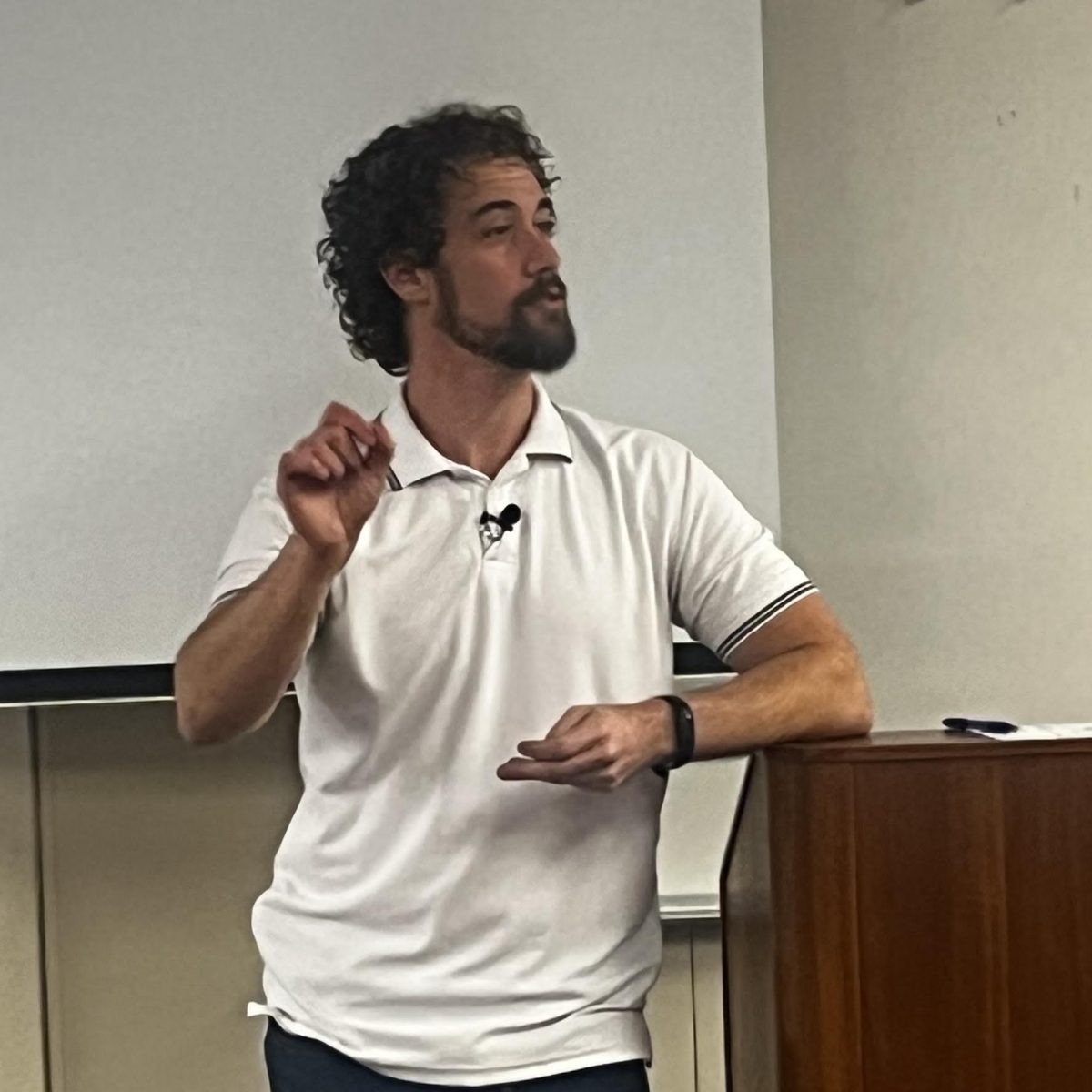Norman Levan Center welcomed Dr.Johnathan Schultz as he gave his lecture on obsessive complusive disorder.
“Am I Going Crazy? Life with Obsessive Compulsive Disorder and how mental health can impact anyone.” It not only gives listeners a view into what OCD may truly look like as it is more than everything having to be in place. OCD is shown to not be a one size fits all but what it will always have in common is the OCD cycle.
The ocd cycle is the stages a person may go through which include obsession, anxiety, compulsion, and relief. Dr.Schultz describes each stage, explaining that when someone without OCD gets impulsive thoughts they’re able to just let them flutter vs. someone who may have ocd will constantly think about it, develop a compulsion or a constant need to do whatever it takes to ease this anxiety and eventually give in to short lived relief before the cycle starts all over again.
“OCD can start with thoughts of a sexual nature, thoughts of violence, and even thoughts of religion. We constantly ask ourselves “what if I’m going to Hell?” or “Am I going to get fired?”, he stated, “but since we are so focused on these thoughts eventually sending us into a spiral it brings shame and guilt, with others experiencing suicidal tendencies just to make the feeling of helplessness stop.”
Professors and counselors are being told to take a different approach by the author by pushing for exposure and response prevention or ERP. This method focuses on resisting compulsion, eventually doing exposure, and focusing on a hierarchy. This method has patients stop avoiding things that may cause symptoms and simulating or “putting Them Back” in the situation that is giving them the anxiety. “Think of it as you’re a person who fears going to Walmart, so you avoid it like the plague, eventually letting it get to the extreme. This doesn’t address your problem and the more nervous you get about Walmart the more it’s ingrained in your mind.”
Dr.Schultz not only talks about ocd but the stigma behind it, he stated that ocd has become more of a white centered and woman centered disorder, as more men are finding it hard to talk about it due to social pressures. “When going to ocd conferences I may be one of the few of the only males on the panel when talking about this, not to mention that most books or exercises place women into the forefront. It doesn’t mean men don’t have the disorder, it’s just harder for them to break into the forefront.”
Schultz states just because you struggle does not mean you don’t impact people. It may be harder because you have other things you go through, but you can still do good things and make your family, your school, your parents, etc.


